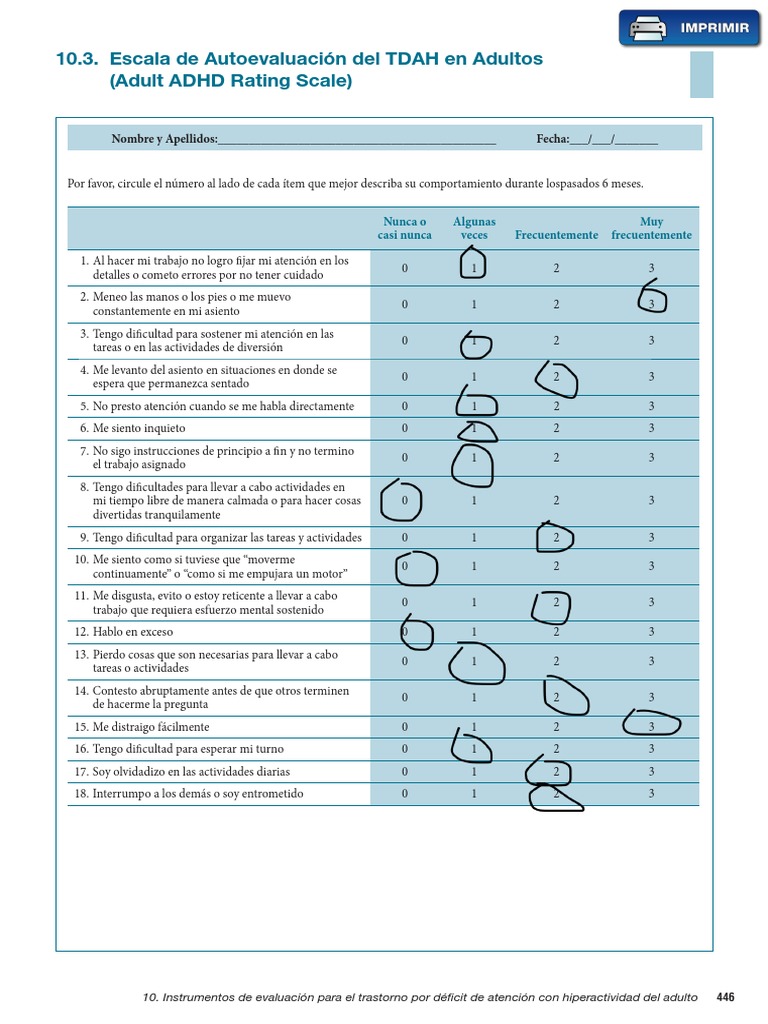Understanding Adult ADHD: Steps After Suspicion

Table of Contents
Recognizing the Symptoms of Adult ADHD
Recognizing the signs of Adult ADHD is the first critical step. While symptoms in adults often differ from those in children, understanding the common presentations is vital.
Common Adult ADHD Symptoms
Adult ADHD symptoms can significantly impact daily life. Common symptoms include:
- Difficulty focusing and sustaining attention: This might manifest as struggling to complete tasks, easily getting distracted, or having trouble listening during conversations. Examples include frequently losing your train of thought while reading or watching TV, difficulty completing projects at work or home, and struggling to follow instructions.
- Impulsivity: This can lead to making hasty decisions, interrupting others frequently, or engaging in risky behaviors. Examples include impulsive spending, blurting out inappropriate comments, or engaging in reckless driving.
- Hyperactivity (in some cases): While hyperactivity is less prominent in adults than children, it can present as restlessness, fidgeting, or excessive talking. This may involve pacing, difficulty sitting still during meetings, or feeling internally restless even when externally calm.
- Organizational challenges: Difficulty managing time, prioritizing tasks, and staying organized are common, leading to missed deadlines, misplaced items, and general disarray. This can range from struggling to manage emails and paperwork to significant challenges in maintaining a clean and organized living space.
- Emotional dysregulation: Adults with ADHD may experience heightened emotional responses, including irritability, frustration, and difficulty managing emotions effectively. Examples include experiencing significant mood swings, reacting disproportionately to minor stressors, or struggling to manage anger.
It's important to remember that Adult ADHD symptoms can manifest differently in each individual. Understanding the nuances of Adult ADHD presentation is key for accurate diagnosis and treatment.
Differentiating ADHD from Other Conditions
Many conditions share symptoms with ADHD, making accurate diagnosis crucial. These include:
- Anxiety: Both ADHD and anxiety can involve restlessness, difficulty concentrating, and emotional distress.
- Depression: Symptoms like difficulty concentrating and low energy can be present in both ADHD and depression.
- Learning disabilities: Challenges with focus and organization can be present in both ADHD and learning disabilities.
A proper differential diagnosis is essential to rule out these other possibilities and ensure the correct treatment plan is implemented. Ignoring the need for a proper ADHD vs anxiety or ADHD vs depression assessment can lead to ineffective or even harmful treatment.
Seeking a Professional Diagnosis for Adult ADHD
Getting a proper diagnosis is the next vital step in managing Adult ADHD.
Finding the Right Specialist
Seek a qualified professional experienced in diagnosing and treating adults. This could be a:
- Psychiatrist: Can diagnose ADHD and prescribe medication.
- Psychologist: Can provide therapy and support.
- Other healthcare professional: Some primary care physicians or neuropsychologists also specialize in ADHD.
Choosing an ADHD specialist with experience in Adult ADHD diagnosis ensures a thorough and accurate evaluation.
The Diagnostic Process
The diagnostic process typically includes:
- Detailed questionnaires and assessments: These standardized tools, such as the Conner's Adult ADHD Rating Scales, help assess symptoms and their impact. This is part of the crucial ADHD assessment and ADHD testing process.
- Interviews: In-depth interviews with the individual, and potentially family members or partners, provide valuable contextual information about symptom presentation.
- Behavioral observation (if applicable): In some cases, observation of behavior may be part of the assessment.
This comprehensive ADHD diagnosis process helps rule out other conditions and establish a clear diagnosis.
Treatment Options for Adult ADHD
Once diagnosed, various treatment options are available to help manage Adult ADHD symptoms.
Medication Management
Medication can significantly improve symptoms for many adults. Common types include:
- Stimulant medication: These medications increase dopamine and norepinephrine levels in the brain.
- Non-stimulant medication: These medications work through different mechanisms to improve focus and attention.
It's crucial to work closely with a doctor to find the right ADHD medication and dosage, carefully monitoring for side effects. The ADHD treatment plan must be personalized and adapted as needed.
Therapy and Lifestyle Changes
Therapy and lifestyle adjustments complement medication and are often vital components of a comprehensive treatment plan.
- Therapy: ADHD therapy, particularly CBT for ADHD, helps develop coping mechanisms and strategies for managing symptoms.
- Lifestyle modifications: These play a crucial role and include:
- Improved sleep hygiene: Prioritizing sufficient sleep improves focus and mood.
- Regular exercise: Physical activity reduces restlessness and improves focus.
- Healthy diet: Nourishing your body supports brain function.
- Stress management techniques: Managing stress helps reduce emotional reactivity.
These ADHD lifestyle changes are part of effective ADHD coping mechanisms.
Conclusion
Suspecting Adult ADHD can be a challenging but important first step. By understanding the symptoms, seeking a professional diagnosis, and exploring effective treatment options, you can begin to manage your symptoms and improve your quality of life. Don't hesitate to reach out to a specialist if you suspect you may have Adult ADHD. Taking proactive steps towards a diagnosis and treatment plan is crucial for managing Adult ADHD effectively and living a fulfilling life. Remember, you are not alone, and help is available. Start your journey to better understanding and managing Adult ADHD today.

Featured Posts
-
 How To Get Capital Summertime Ball 2025 Tickets Your Guide
Apr 29, 2025
How To Get Capital Summertime Ball 2025 Tickets Your Guide
Apr 29, 2025 -
 The January 29th Dc Air Disaster A Case Study In Media Reporting
Apr 29, 2025
The January 29th Dc Air Disaster A Case Study In Media Reporting
Apr 29, 2025 -
 Arne Slot The Architect Of Liverpools Near Title Win
Apr 29, 2025
Arne Slot The Architect Of Liverpools Near Title Win
Apr 29, 2025 -
 Geary County Jail Bookings April 24 28 Mugshots
Apr 29, 2025
Geary County Jail Bookings April 24 28 Mugshots
Apr 29, 2025 -
 Jeff Goldblum And The Mildred Snitzer Orchestras I Dont Know Why I Just Do Ft Ariana Grande A Musical Collaboration
Apr 29, 2025
Jeff Goldblum And The Mildred Snitzer Orchestras I Dont Know Why I Just Do Ft Ariana Grande A Musical Collaboration
Apr 29, 2025
Latest Posts
-
 Chelyabinskie Gorki Zakryty Posledstviya Anomalnoy Pogody
Apr 30, 2025
Chelyabinskie Gorki Zakryty Posledstviya Anomalnoy Pogody
Apr 30, 2025 -
 Inmate Death Prompts Family Lawsuit Against San Diego County Sheriff
Apr 30, 2025
Inmate Death Prompts Family Lawsuit Against San Diego County Sheriff
Apr 30, 2025 -
 Inmates Death At San Diego County Jail Prompts Family To Sue
Apr 30, 2025
Inmates Death At San Diego County Jail Prompts Family To Sue
Apr 30, 2025 -
 Anomalnoe Poteplenie Gorki Chelyabinska Snova Zakryty
Apr 30, 2025
Anomalnoe Poteplenie Gorki Chelyabinska Snova Zakryty
Apr 30, 2025 -
 San Diego Sheriffs Office Facing Lawsuit After Inmate Dies In Custody
Apr 30, 2025
San Diego Sheriffs Office Facing Lawsuit After Inmate Dies In Custody
Apr 30, 2025
